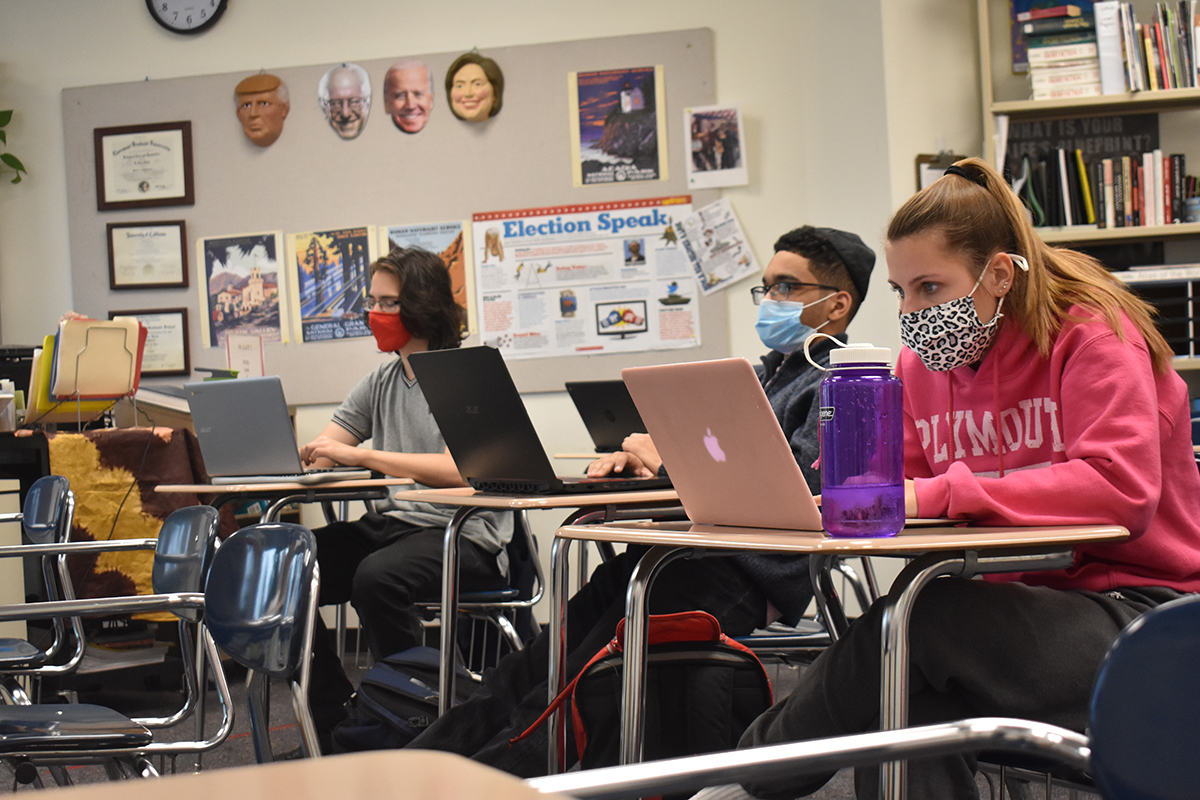Climate change is a hot topic for Hyman Brand Hebrew Academy’s juniors and seniors, and they’re getting hands-on at the local level. The project is part of an annual social justice initiative the school has done in the past alongside University Academy.
This year, they’ve added Academie Lafayette to their group as they have researched a climate action plan to figure out how they can drive change in the community on this issue.
Originally, this was last year’s project, but the pandemic halted work on it last spring.
The schools kept the topic for this school year so students could see their work come to fruition. Now that they’ve done their research, the focus is on meeting with local city officials to encourage them to adopt some of the changes the students are proposing.
“They ask for specific policy changes that are in the climate action plan that they have decided they think are really positive steps in climate change mitigation,” said Todd Clauer, upper school principal at HBHA. “There’s a program through Evergy called Renewables Direct, and what that does, a city can sign on, which means they will get all of their electricity for city functions from wind farms.”
Ilana Fingersh, 18, worked with her group to go through the suggestions published by Climate Action KC regarding emissions and also looked at who is affected by climate change.
“I think what a lot of people don’t realize about climate change and global warming is it’s not just that everything’s going to get hotter, and the summer’s going to be longer. We’ll have a lot more rain, and we’ll have a lot more floods. The extremes get way more extreme,” she said.
Not every change the students are suggesting for cities is a huge one. Nina Schultz, 17, discovered a less expensive change in encouraging cities to plant native species and refrain from invasive ones.
“It’s easy for cities to do, because plants aren’t that expensive. The labor to plant them isn’t too expensive either, and it makes a huge difference,” she said.
Moving the partnership between the schools to Zoom was an adjustment.
“It’s definitely a lot harder. Last year, it was easier to become friends with them,” Fingersh said. “A few of the kids I knew from last year. Those connections were easy to restart.”
Without the face-to-face meetings, ice breakers fell by the wayside.
“The first time we would meet with the schools (last school year), we would do team bonding and not just jump into the initiatives. We weren’t able to do that this year, so we did just jump in,” Schultz said.
Although meeting with city officials can be intimidating when you’re a teenager, the students usually got a warm reception.
“They’re super excited to hear from teenagers that care about the world,” Fingersh said.
Students tried to advocate for the parts of the metro where they live. For Fingersh, that meant talking with Prairie Village officials — and she was impressed with what she found.
“They are doing really well with all that stuff. They’re super progressive in environmental policy. There isn’t a whole lot for us to suggest,” she said.
Contacting officials wasn’t always easy, and in at least one case, several email inquiries went unreturned.
“The most challenging thing is being ghosted by cities and not hearing back from them. We put in so much time figuring out what the KC Climate Action Plan is saying. It’s a little bit frustrating when we’re reaching out to a city and don’t hear back,” Schultz said.
That was not the case for Schultz with Lenexa. She and other students met with City Council member Julie Sayers to discuss what the city was already doing to stem climate change.
“The first step is to get a feel of what they’re already doing so we’re not repeating those same things,” Schultz said. “… One thing Lenexa was really proud of is their parks. They have a city greenhouse. They’re planting native species. One thing they did say they could improve on is building codes and clean-fleet programs. That’s always difficult, because vehicles are so expensive.”
Abby Kreisler, 18, enjoyed getting a look into how things like this happen in local government when her group contacted officials in Olathe.
“A lot of these city officials love to talk to young people. It means much more. They’re more inclined to actually consider what we say and work with us,” she said. “If they say no, they can teach us about why that doesn’t happen and a little more about government and how things work.”
All the research she did for this project helped shape her decision to major in environmental science and environmental engineering when she heads to college this fall.
“It exposed all of us to completely new things,” Kreisler said.
